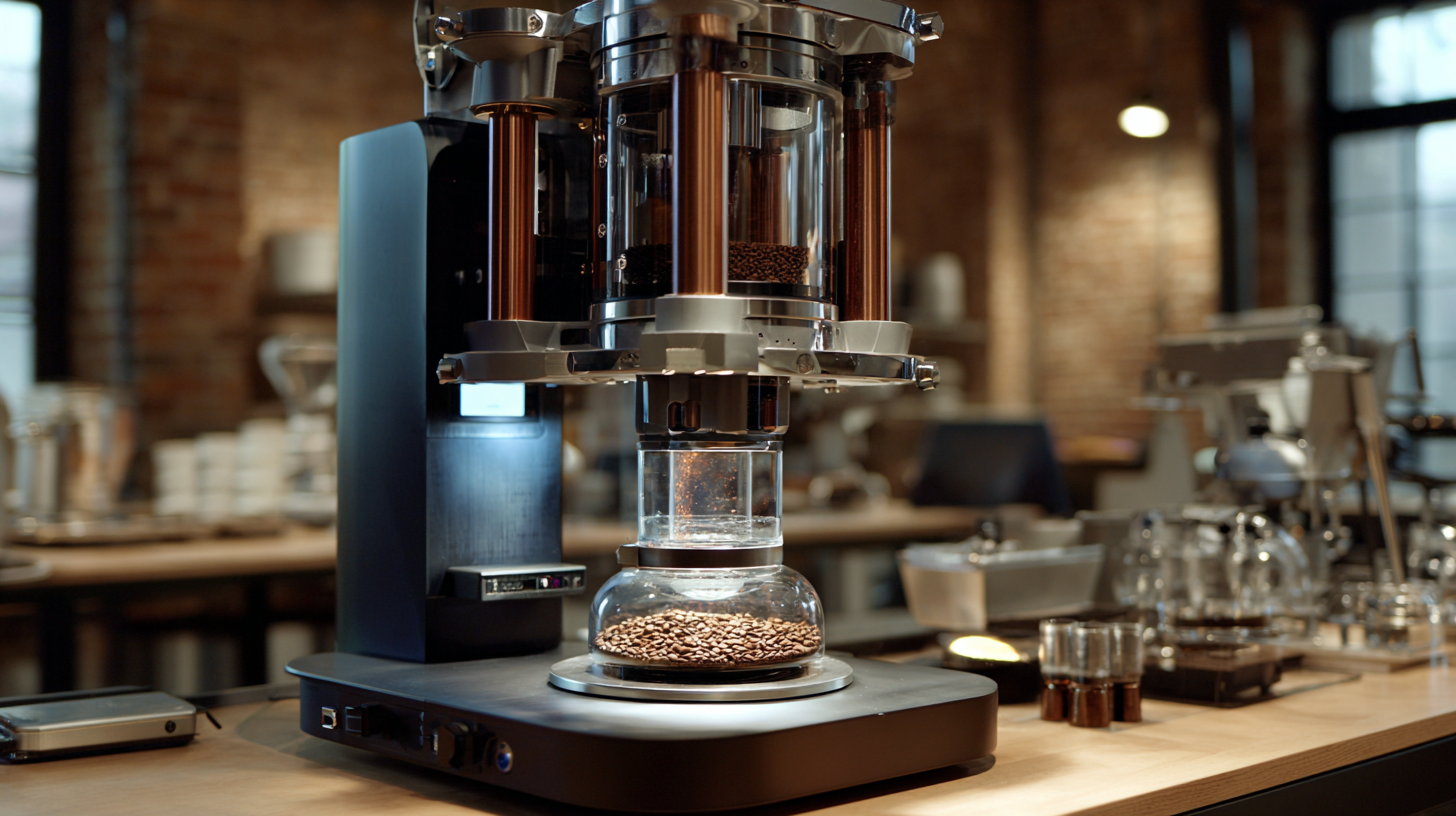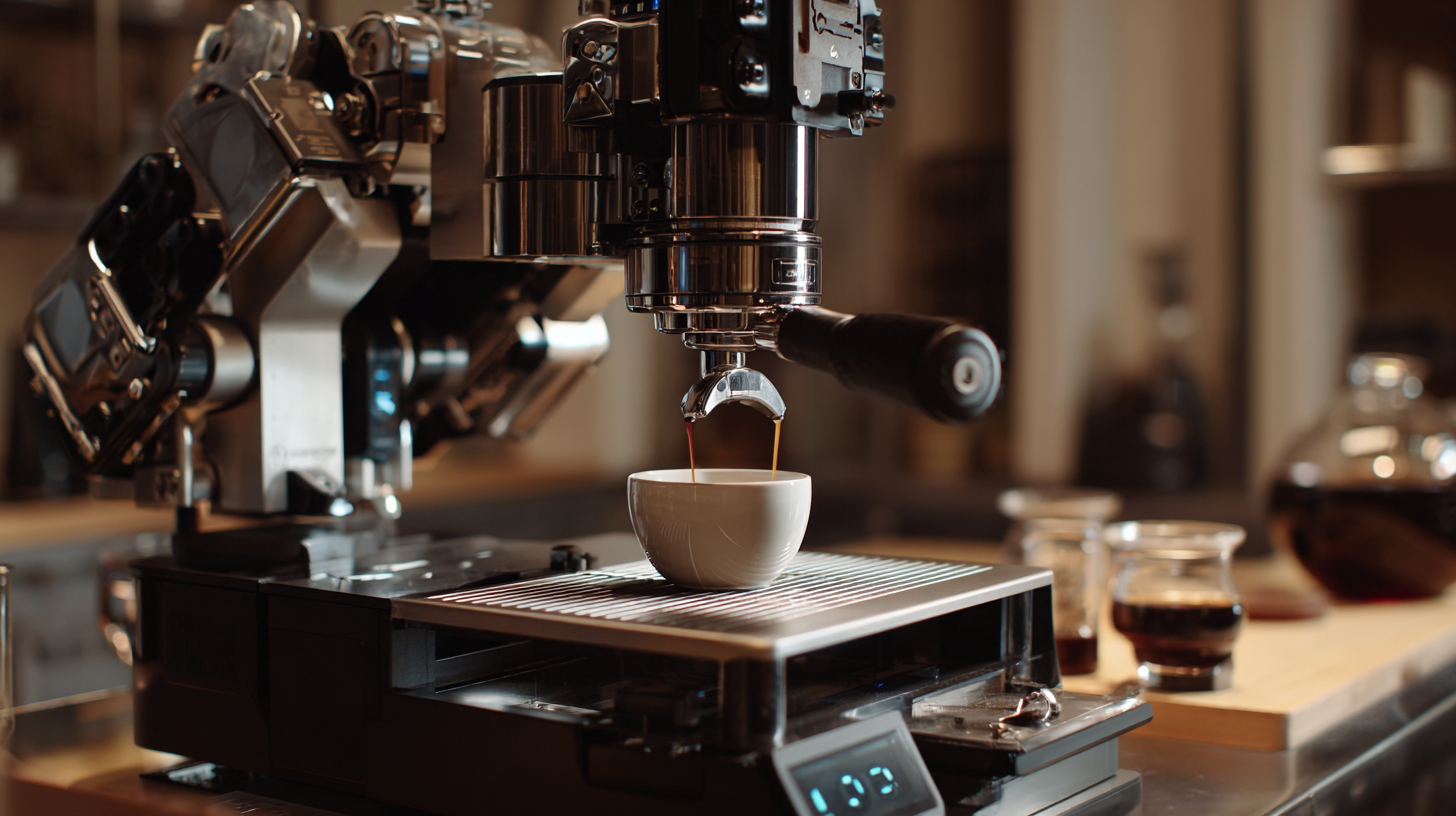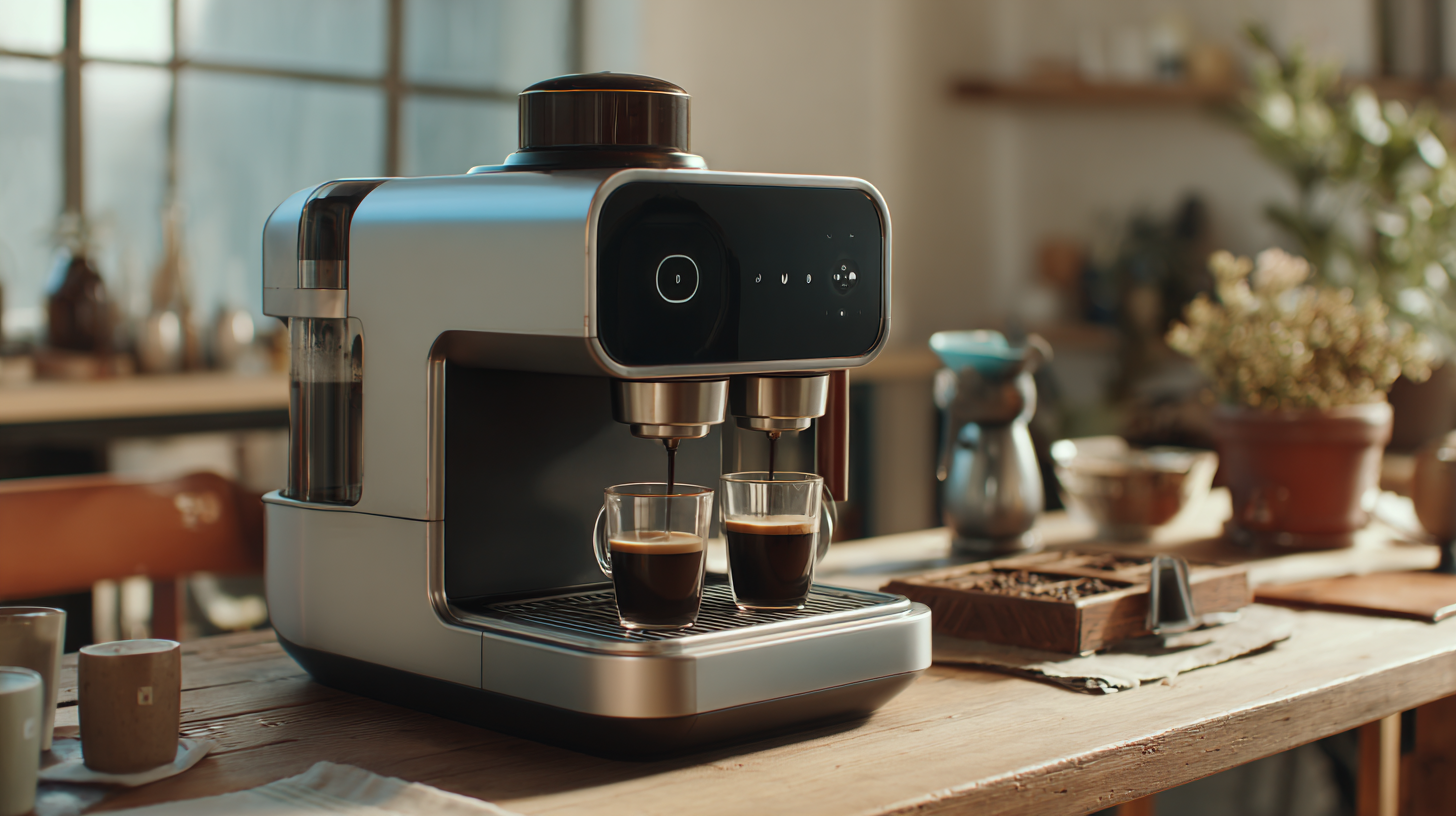Exploring the Future of Automated Coffee Brewing with Coffee Robots
The coffee industry has witnessed remarkable transformations in recent years, with advancements in technology shaping the way we brew our beloved beverage. As consumer preferences evolve and the demand for efficiency increases, the emergence of "Coffee Robots" has caught the attention of both coffee enthusiasts and industry professionals. According to a report by the International Coffee Organization, global coffee consumption is projected to surpass 200 million 60-kilogram bags by 2025, signifying a burgeoning market that demands innovative brewing solutions.
Coffee Robots, equipped with cutting-edge automation technology, are poised to redefine the coffee brewing experience by ensuring consistency, quality, and speed in service. Research from Statista indicates that the market for commercial coffee machines, including robotic systems, is expected to reach $10 billion by 2026. This impressive growth presents significant opportunities for the integration of robotics into coffee preparation, enhancing both the efficiency of cafès and the quality of the coffee served. As we delve into the future of automated coffee brewing, it becomes crucial to explore how these Coffee Robots will influence consumer behavior, redefine traditional brewing methods, and potentially revolutionize the coffee industry as a whole.

The Rise of Coffee Robots: Transforming the Way We Brew
The rise of coffee robots is revolutionizing the way we brew our favorite beverages, bringing efficiency and precision to the coffee-making process. According to a recent industry report by Allied Market Research, the global coffee machine market is projected to reach $10.9 billion by 2025, with automated systems playing a pivotal role in this growth. These advanced machines not only enhance the brewing experience but also cater to the rising consumer demand for specialty coffee, enabling home users to replicate café-quality beverages.
For those looking to elevate their coffee game, investing in an automated coffee machine can be beneficial. **Tip 1:** Look for machines with customizable settings, allowing you to adjust brew strength and temperature according to your preference. **Tip 2:** Opt for models with built-in grinders to use fresh beans for a richer flavor. As the technology behind coffee robots continues to evolve, we can expect even more innovations that simplify the brewing process while delivering top-notch results.
Furthermore, the rise of smartphone connectivity in coffee robots allows users to remotely control and program their brews, enhancing convenience in our fast-paced lives. **Tip 3:** Explore machines that integrate with smart home systems to automate your coffee routine, setting it to brew just before you wake up for a perfect start to your day. With these advancements, the future of coffee brewing looks promising, as more enthusiasts embrace the benefits of automated brewing solutions.

Key Technologies Driving Automated Coffee Brewing Innovations
The future of automated coffee brewing is being shaped by several key technologies that are driving significant innovations in the industry. According to a recent report by Grand View Research, the global coffee machine market is anticipated to reach USD 12.86 billion by 2027, growing at a CAGR of 4.8%. This growth is fueled by advancements in robotics, IoT, and machine learning, each playing a crucial role in enhancing the brewing process and overall coffee experience.
One of the most exciting developments is the integration of smart technology into coffee machines, allowing them to learn user preferences and optimize brewing parameters. These systems utilize algorithms to analyze various factors, such as grind size, water temperature, and brew time, ensuring a consistent and personalized cup of coffee every time. A study from Research and Markets also highlights that the demand for fully automated coffee systems is on the rise, particularly in the commercial sector, where efficiency and quality control are paramount. Coffee robots equipped with precision brewing capabilities can not only streamline operations but also reduce preparation time, meeting the increasing consumer demand for high-quality coffee on-the-go.
Furthermore, the rise of mobile applications linked to coffee brewing machines offers users unprecedented control and customization. A survey conducted by the Specialty Coffee Association indicated that 73% of consumers are interested in using apps to adjust their brewing parameters. This convergence of technology promises to revolutionize the coffee brewing landscape, making it more accessible and user-friendly, while also catering to the discerning tastes of coffee enthusiasts around the globe.

Benefits of Coffee Robots: Efficiency, Consistency, and Quality
The future of coffee brewing is being revolutionized by automation, specifically through the use of coffee robots. These advanced machines not only streamline the brewing process but also significantly enhance several key areas: efficiency, consistency, and quality. According to a recent report by the Specialty Coffee Association, nearly 60% of coffee businesses are considering incorporating automation to improve operational efficiency. Coffee robots can brew a perfect cup in less time than traditional methods, enabling cafes and restaurants to serve more customers during peak hours without compromising on taste.
Consistency is another significant advantage of coffee robots. A study published in the Journal of Coffee Research highlights that automated brewing can yield a 95% consistency rate in flavor profile compared to just 70% with manual methods. This consistency ensures that customers receive the same high-quality service regardless of when they visit. In addition, coffee robots are designed to maintain optimal brewing temperatures and times, leading to delicious coffee every time.
Tips for leveraging coffee robots effectively include regular maintenance checks to ensure optimal performance and investing in quality beans that complement the robot's brewing capabilities. Additionally, training staff to understand the technology can help troubleshoot minor issues quickly and maintain efficiency. Embracing this automation trend not only enhances the coffee experience but also positions businesses at the forefront of innovation in the coffee industry.
Benefits of Coffee Robots
Challenges in the Adoption of Coffee Brewing Automation
As automated coffee brewing technology continues to develop, various challenges impede its widespread adoption in both commercial and home settings. One significant hurdle is the perception that automated machines lack the ability to replicate the nuanced flavors and aromas that a skilled barista can achieve. Many coffee enthusiasts remain skeptical about compromising quality for convenience. Additionally, the price of high-quality coffee robots remains a barrier, particularly for small businesses that may not have the budget to invest in such technologies.
Tips: When considering automation for coffee brewing, it’s essential to trial different machines before investing. Look for models that allow adjustment of brewing parameters to maintain flavor integrity.
Another challenge is the technical knowledge required to operate and maintain these automated systems. Users often face steep learning curves, meaning that without adequate training, they may not be able to maximize the machines' potential. This lack of familiarity can deter coffee shops and customers from fully embracing automation.
Tips: Consider attending workshops or online courses focused on coffee brewing automation. Building a strong understanding of your machine can greatly enhance the brewing experience.
The Future of Personalized Coffee Experiences through Automation
The coffee experience is poised for transformation as automation technology advances, allowing for highly personalized brewing. Coffee robots equipped with artificial intelligence can analyze individual taste preferences and brewing habits, crafting a unique cup tailored to each user. Imagine a home coffee brewer that remembers your favorite flavor profiles and adjusts the grind size, water temperature, and brew time accordingly. This level of customization ensures that each cup of coffee is not only delicious but also perfectly suited to the drinker’s liking.
Moreover, the integration of smart technology in coffee brewing extends beyond mere convenience. Through connected devices, users can participate in an interactive coffee-making journey. By utilizing mobile applications, coffee enthusiasts can select from a variety of beans, control brewing variables, and even share their creations with friends. This social aspect of automated coffee brewing not only enhances the drinking experience but also fosters a community of coffee lovers who appreciate the intricacies of their craft. As we embrace these innovations, the future of personalized coffee experiences promises to be both exciting and fulfilling.
